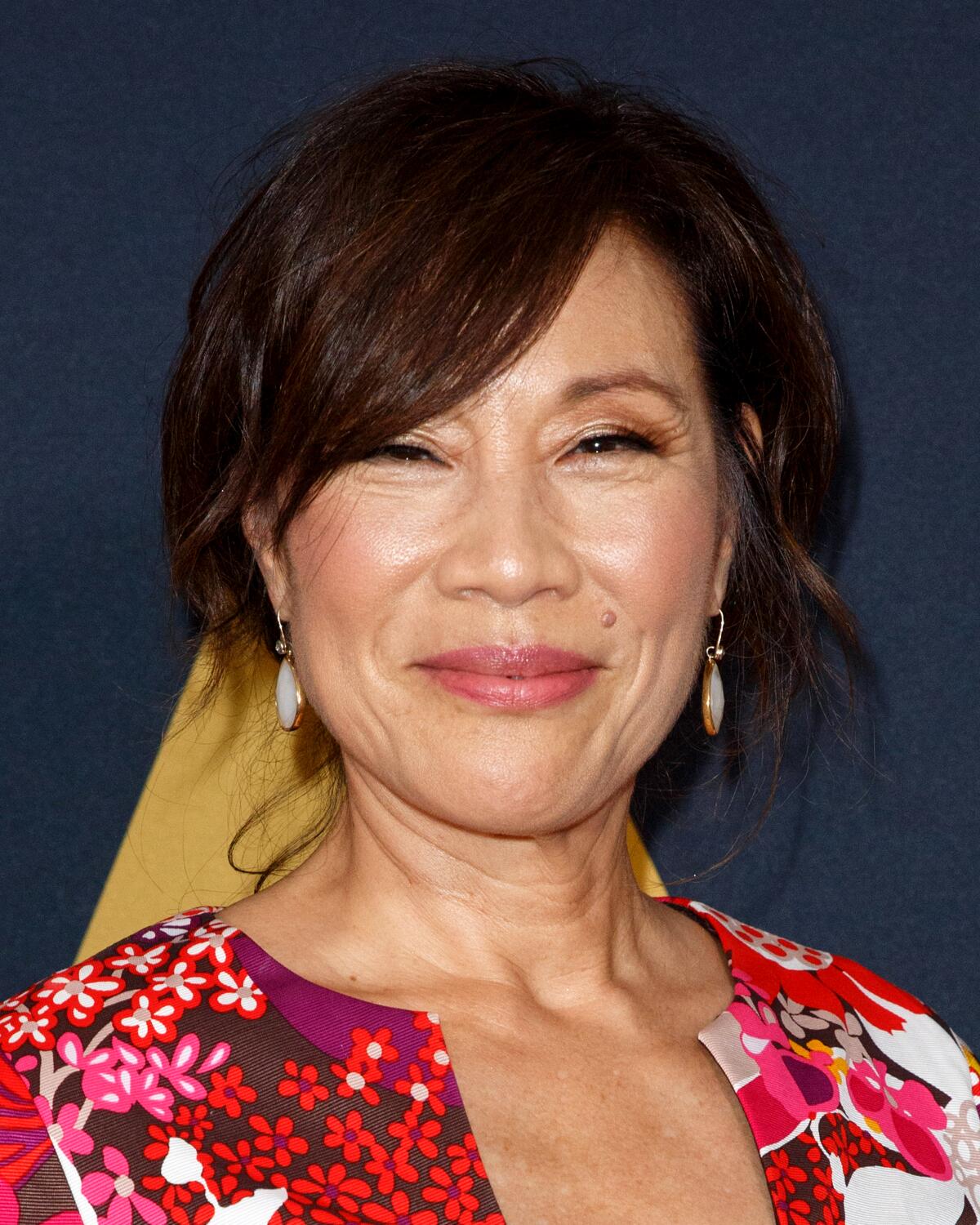Producer Janet Yang elected president of the film academy

Hollywood’s most prestigious organization is under new management.
Producer Janet Yang was elected the 36th president of the Academy of Motion Picture Arts and Sciences, the group’s board of governors announced Tuesday. Along with recently installed Chief Executive Bill Kramer, Yang is charged with helping to lead the 95-year-old institution as it navigates an ever more challenging environment for the Oscars and the film business as a whole.
In a meeting Tuesday afternoon at the academy’s Beverly Hills headquarters, the group’s 54-member board, including such industry notables as Ava DuVernay, Jason Reitman and Whoopi Goldberg, elected Yang to succeed the group’s outgoing president, casting director David Rubin, who is stepping down because of term limits after three years at the helm.
Yang brings a deep well of experience within the film industry and in the academy itself. Her producing credits include “The Joy Luck Club,” “The People vs. Larry Flynt” and the Oscar-nominated 2020 animated feature “Over the Moon.” A member of the academy’s producers branch since 2002, Yang was appointed an academy governor-at-large in 2019 and most recently served on the board as vice president and chair of the membership committee. A key player in the academy’s efforts to boost inclusion, Yang is also co-chair of the academy’s Asian Affinity Group.
“Janet is a tremendously dedicated and strategic leader who has an incredible record of service at the academy,” Kramer said in a statement. “She has been instrumental in launching and elevating several academy initiatives on membership recruitment, governance, and equity, diversity, and inclusion.”
At a time when the academy faces challenges on numerous fronts — including flagging public interest in the Academy Awards and seismic shifts in the film distribution landscape — the organization is in the midst of a leadership transition, with former Academy Museum of Motion Pictures director Kramer taking over last month following the departure of Dawn Hudson, who served as CEO for 11 transformative and often tumultuous years. Yang is seen by many in the group as a trusted, forward-thinking insider to help steer an organization whose voting membership has ballooned over the past decade from 5,765 in 2012 to more than 10,000 today.
In decades past, the role of academy president, which is unpaid, was largely ceremonial, filled over the years by the likes of Frank Capra, Bette Davis and Gregory Peck as well as less renowned industry insiders. But in recent years, as the organization has expanded and remade itself inside and out, the job has grown more demanding — and the public spotlight has grown more intense.
Under Rubin’s leadership, even as the academy continued its push to diversify its membership ranks and celebrated the long-awaited opening of the Academy Museum, the group faced a series of internal controversies and public relations crises.
Heading into this year’s Oscars, the academy was roiled by weeks of controversy over its plan to move eight below-the-line and short-film categories out of the live televised ceremony. In an open letter, more than 70 prominent film professionals — including Oscar winners James Cameron, Kathleen Kennedy, John Williams and Guillermo del Toro — blasted the ratings gambit, saying it would relegate some nominees to “the status of second-class citizens” and do “irreparable damage” to the Oscars’ reputation.
The decision to create a “fan favorite” award, voted on via Twitter in a further effort to boost audience engagement with the Oscars, drew additional criticism.
Compounding the academy’s woes, March’s ceremony careened off the rails when Will Smith struck Chris Rock onstage over a joke about Smith’s wife, Jada Pinkett Smith. In the aftermath of the shocking incident, Hudson and Rubin acknowledged in a letter to members that they “did not adequately address” it in the moment.
How Yang, along with Kramer and the rest of the group’s leaders, will address the significant challenges facing the group going forward remains to be seen. But, speaking to The Times last month as his tenure was winding down, Rubin suggested that anyone attempting to lead a highly scrutinized and sometimes fractious group like the academy needs to have a thick skin.
“For an organization that was founded in the 1920s, change can be painful,” Rubin said. “The bright spotlight is inevitable. And for the press, it’s incredibly entertaining to write about. … But I’m so excited to witness both the continuation of initiatives that had already begun and to see what ideas come with the new leadership to come.”
More to Read
Only good movies
Get the Indie Focus newsletter, Mark Olsen's weekly guide to the world of cinema.
You may occasionally receive promotional content from the Los Angeles Times.











